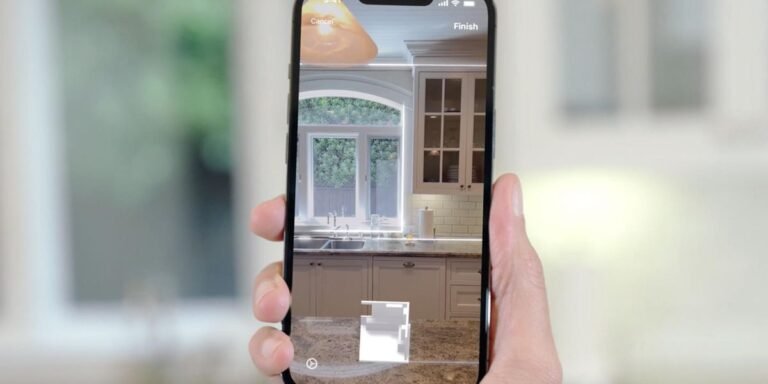
[ad_1]

The Apple Worldwide Developers Conference (WWDC) earlier this month focused on the new Apple M2 processor and the game changer for iOS. But what stood out the most was Apple’s silence on the metaverse. According to rumors, his AR/VR headset and the RealityOS operating system it can use have not been seen anywhere.
This may be interpreted as an insult. But Apple has a very specific target: Meta.
“Metaverse as a term really took off when people started talking about it,” says Anshel Sag, principal analyst at Moor Insights & Strategy. Facebook’s rebrand immediately made headlines on every major tech website, dramatically increased Google searches for the term, and sparked a virtual real estate boom.
This is certainly not in Apple’s favor, and gives Tim Cook plenty of reasons not to talk about the term. But this is more than a marketing ploy. The vision of the metaverse proposed by Meta is fundamentally at odds with what Apple might adopt if it brings an AR/VR headset to market.
“There was a lot of anxiety in the industry about what Apple was about to announce. Now that they didn’t, there was almost a sense of relief.”
— Anshel Sag, Moor Insights & Strategy
“Meta shipped 15 million. [Oculus Quest] units, but they do it in a way that costs them dearly,” says Sag. “They’re probably shipping at a loss on equipment.”
Zuckerberg’s vision of the “Internet incarnate” focuses on social platforms and services. The Quest headset is impressive, and if projects like the Cambria VR headset hit the market, there will be a generational leap soon. But the real goal of Meta is to create a new social platform, not to develop and sell AR/VR headsets.
For Apple, innovation is key. It almost doesn’t matter if that hardware is used to access the Meta metaverse, another company’s platform, or isolated experiences created by small developers.
Apple’s alternative to the Meta Internet incarnate is likely to be a broad offering spanning the iPhone, iPad, Mac, and an upcoming AR/VR headset. The Metaverse could simply be an app (or apps) competing against other AR/VR apps across multiple devices.
“I wouldn’t read too much about Apple if I didn’t use the word ‘metaverse’,” says George Jijiashvili, chief analyst at Omdia. “Rather focus on what it actually does to provide experiences that can support virtual social interactions in the future.”
Competitors breathed a sigh of relief
Aside from the new RoomPlan Swift API, a technology that developers can use to quickly create 3D floor plans for real-life spaces, Apple hasn’t had any brand new AR/VR announcements. RealityOS, the operating system rumored to be used in Apple’s upcoming headset, hasn’t even been teased.
This seems to be a vote of no confidence in the entire metaverse and possibly the entire AR/VR space. However, Jijiashvili warns against such pessimism. “The reality is that Apple has a lot of strengths in this area, which it continues to gradually improve,” Jijiashvili says.
He notes that Apple has acquired more than eight AR/VR startups since 2015. ARKit, Apple’s augmented reality development platform for iOS devices, continues to attract interest from developers, including big names like Snapchat and even Instagram, which is owned by Meta.
However, Apple’s lack of news gives the rest of the industry an opportunity to prepare for its seemingly inevitable leap into space. While consumer headsets are dominated by Meta, which makes almost 80 percent of all headsets sold, the industry is full of mid-sized companies such as HTC, Valve, DPVR, Magic Leap, Pico, Lumus, Vuzix, Pimax and Varjo. a little. Apple’s entry into space could endanger these innovators.
“There was a lot of anxiety in the industry about what Apple was going to announce,” says Sag. “Now that they haven’t, there’s almost a sense of relief.”
Augmented Reality Headsets Face Headwinds
Apple’s decision not to show off its headset, which is believed to support both AR and VR, hints that the company is unhappy with its progress.
This is not one. Meta has reportedly shelved an upcoming AR headset known as Project Nazare. Magic Leap 2 and Microsoft HoloLens 2 seem locked into the world of high-end enterprise solutions, despite the years of both companies.
AR seems to be hard to get right.
That doesn’t leave a serious alternative to Meta’s Quest 2 on the horizon. Rumor has it that its successor, Project Cambria, will release in 2022, and if it launches this year, it may not have any competition. “Perhaps the emphasis has shifted towards virtual reality more than people expected,” Sag says.
The Metaverse is facing major challenges, but the lack of augmented reality alternatives gives Meta time to address the issues. And there’s always the possibility that Apple’s headset, like the company’s rumored self-driving car, never shows up. The Meta’s vision of a fully embodied metaverse may win by default if alternatives never hit store shelves.
[ad_2]
Source link